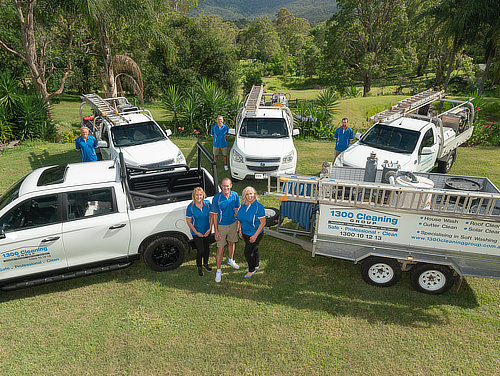Understanding Soft Washing: A Comprehensive Guide
Soft washing is a specialised cleaning technique that has gained significant popularity in recent years for its effectiveness in cleaning and restoring a wide range of surfaces, from roofs and siding to decks and driveways. Whether you’re looking for a cleaner roof in Brisbane or house washing on the Gold Coast, we can help. Unlike traditional pressure washing, soft washing relies on a gentle approach using low-pressure water combined with specialised cleaning solutions to safely and effectively remove dirt, grime, mould, algae, lichen and other contaminants without causing damage. In this comprehensive guide, we will delve into what soft washing is, how it works, its applications, benefits, and why it has become a preferred method for exterior cleaning.
What Is Soft Washing?
Soft washing is a cleaning method that employs a combination of low-pressure water and cleaning solutions to remove and eliminate contaminants from various surfaces. This technique is particularly suitable for delicate surfaces that cannot withstand the high-pressure force used in traditional power washing.
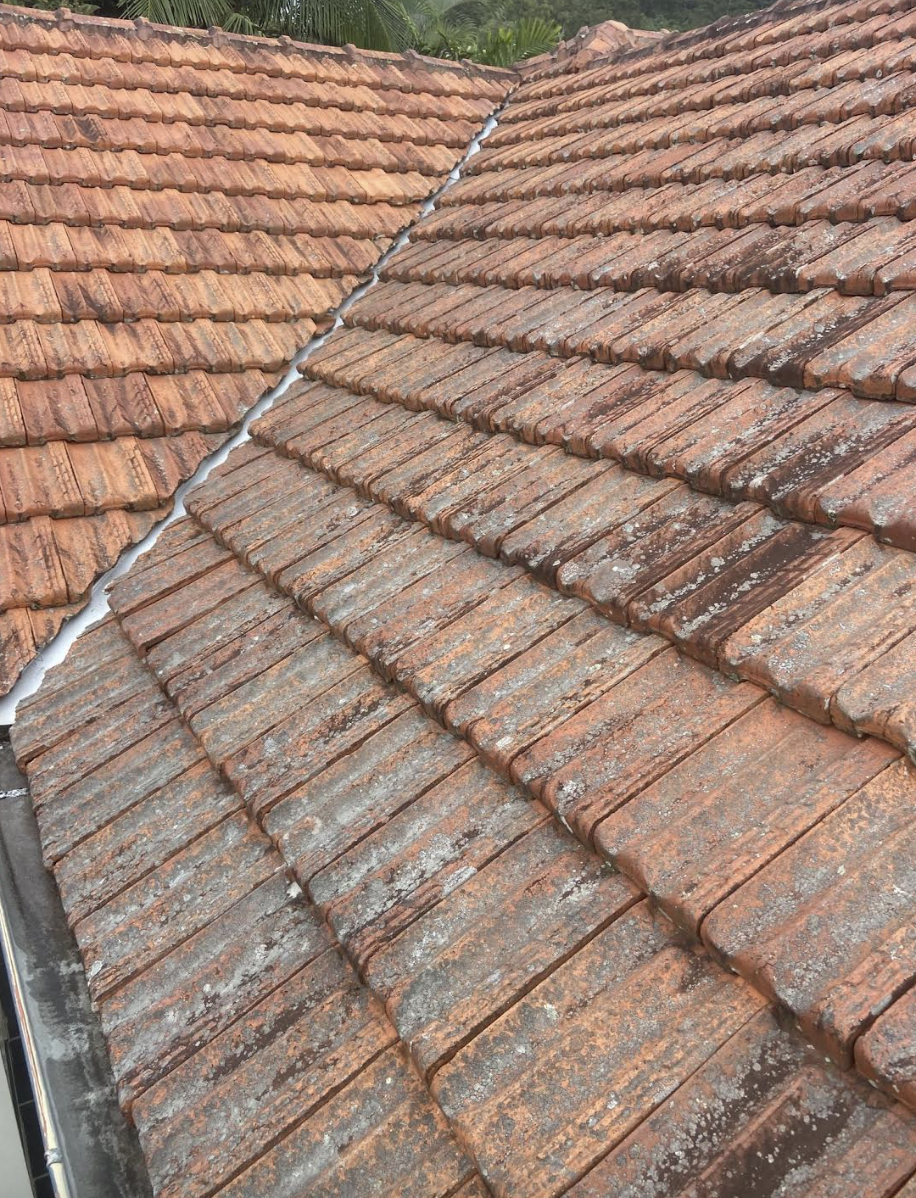
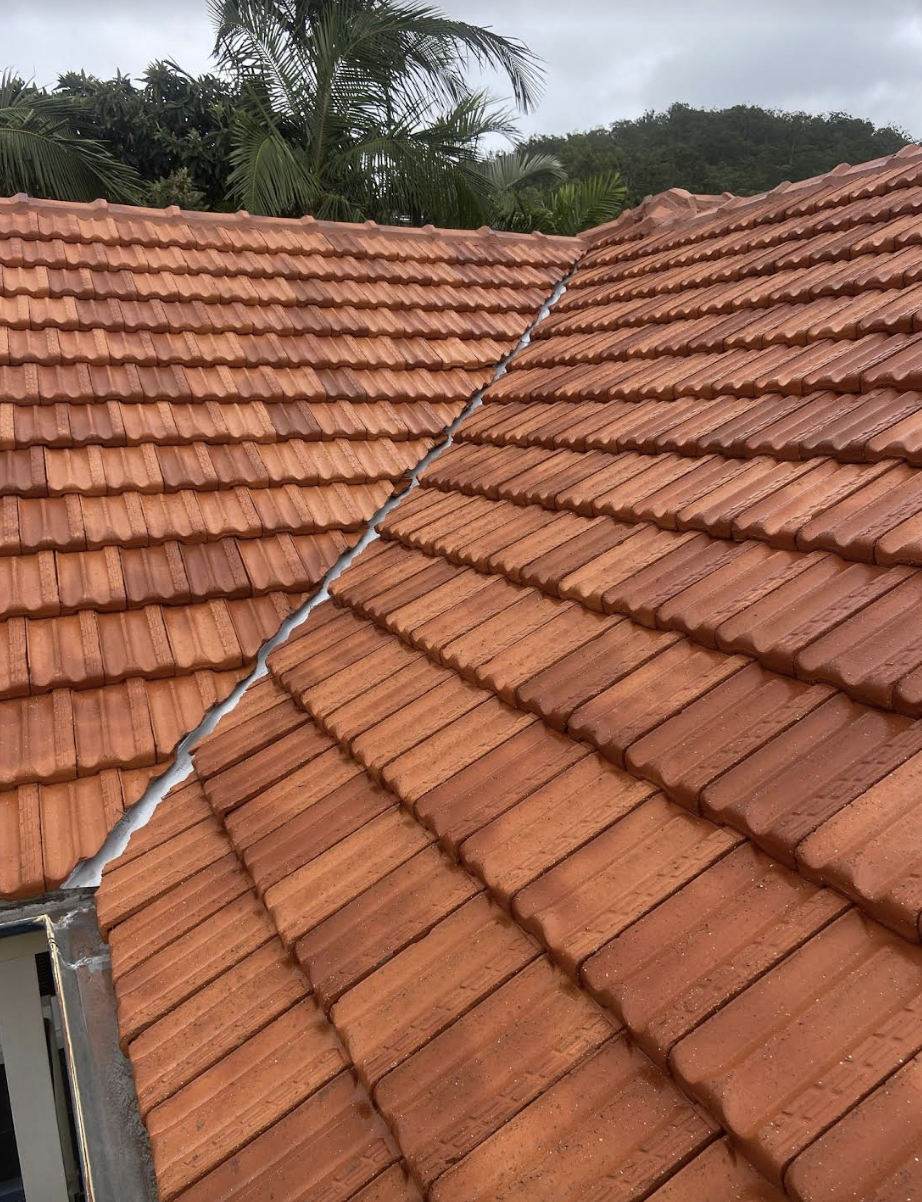
Key Components of Soft Washing:
1. Low Pressure: Unlike pressure washing, which uses high-pressure water jets, soft washing typically operates at pressures below 500 PSI (pounds per square inch). This low-pressure approach is gentler on surfaces, preventing damage, and is particularly effective for cleaning more fragile materials like roofing shingles and stucco.
2. Cleaning Solutions: Soft washing relies on specialised cleaning solutions to break down and remove contaminants. These solutions are typically biodegradable, eco-friendly, and designed to kill mould, mildew, algae, and other organic growth while preventing regrowth.
3. Dwell Time: Soft washing solutions require a certain amount of time to work effectively. Technicians apply the cleaning solution to the surface and allow it to dwell for a specified period, usually 10-15 minutes, to ensure thorough cleaning.
4. Rinsing: After the dwell time, the surface is gently rinsed with low-pressure water to remove the cleaning solution, along with the loosened contaminants. This step ensures that the surface is left clean and residue-free.
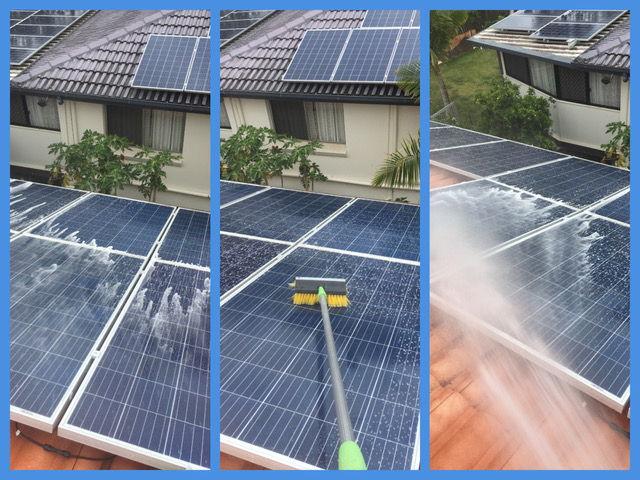
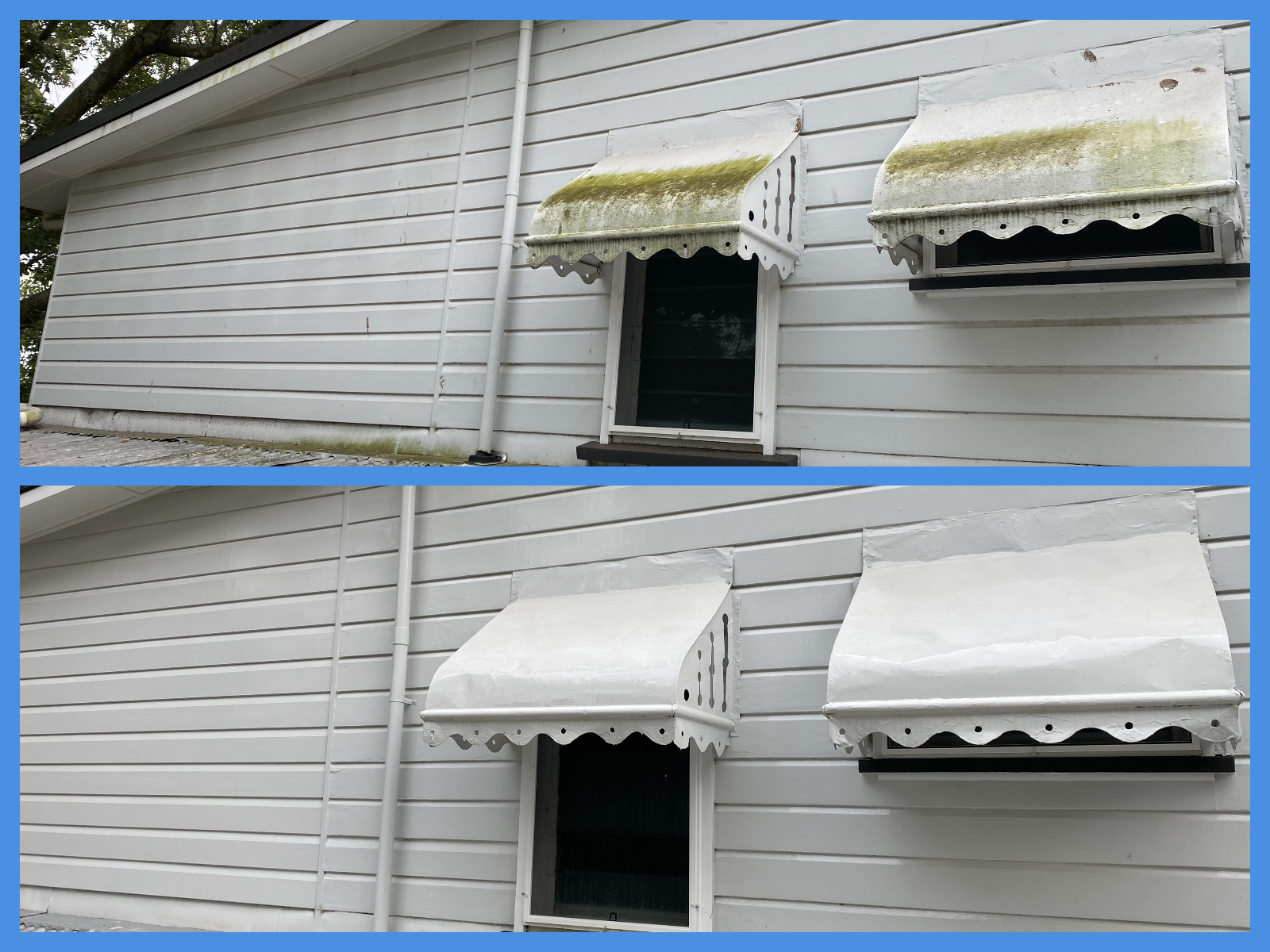
How Does Soft Washing Work?
The soft washing process involves several steps to ensure thorough cleaning without causing any damage to the surface being treated. Here’s a breakdown of the typical soft washing procedure:
1. Surface Inspection: A professional soft washing technician starts by inspecting the surface to be cleaned. This assessment helps determine the level of contamination and the appropriate cleaning solutions to use.
2. Cleaning Solution Preparation: Based on the assessment, the technician prepares the suitable cleaning solution, often a mix of water, detergents, and mildewcides or algaecides. These solutions are tailored to address specific contaminants and surface types.
3. Application of Cleaning Solution: The technician evenly applies the cleaning solution to the surface, ensuring complete coverage. It is then left to dwell for the prescribed time, allowing the solution to penetrate and break down contaminants.
4. Gentle Rinsing: After the dwell time has passed, the technician rinses the surface thoroughly with low-pressure water. This step removes the cleaning solution along with the loosened contaminants, leaving the surface clean and restored.
5. Inspection and Touch-up: The technician inspects the cleaned surface to ensure that all contaminants have been effectively removed. Any remaining stubborn stains or spots may be gently touched up as needed.
Applications of Soft Washing
Soft washing is a versatile technique that can be applied to various surfaces and situations. Some common applications include:
1. Roof Cleaning: Soft washing is particularly well-suited for cleaning roofs made of shingles, tiles, or slate. It effectively removes algae, lichen, moss, and black streaks without damaging the roofing materials.
2. House Exteriors: Soft washing can clean and revitalise the exterior of homes, including siding, stucco, brick, and wood surfaces. It eliminates dirt, mould, mildew, lichen and other contaminants, enhancing the curb appeal of the property.
3. Decks and Patios: Timber decks and concrete patios can accumulate mould, algae, lichen and dirt over time. Soft washing can safely restore these outdoor spaces, making them look new again.
4. Fences: Soft washing is an excellent choice for cleaning and maintaining wooden and vinyl fences. It removes grime, algae, and lichen, extending the life of the fence.
5. Concrete and Driveways: Driveways, sidewalks, and concrete surfaces can develop stains and discolouration. Soft washing can effectively remove these blemishes, restoring the appearance of the concrete.
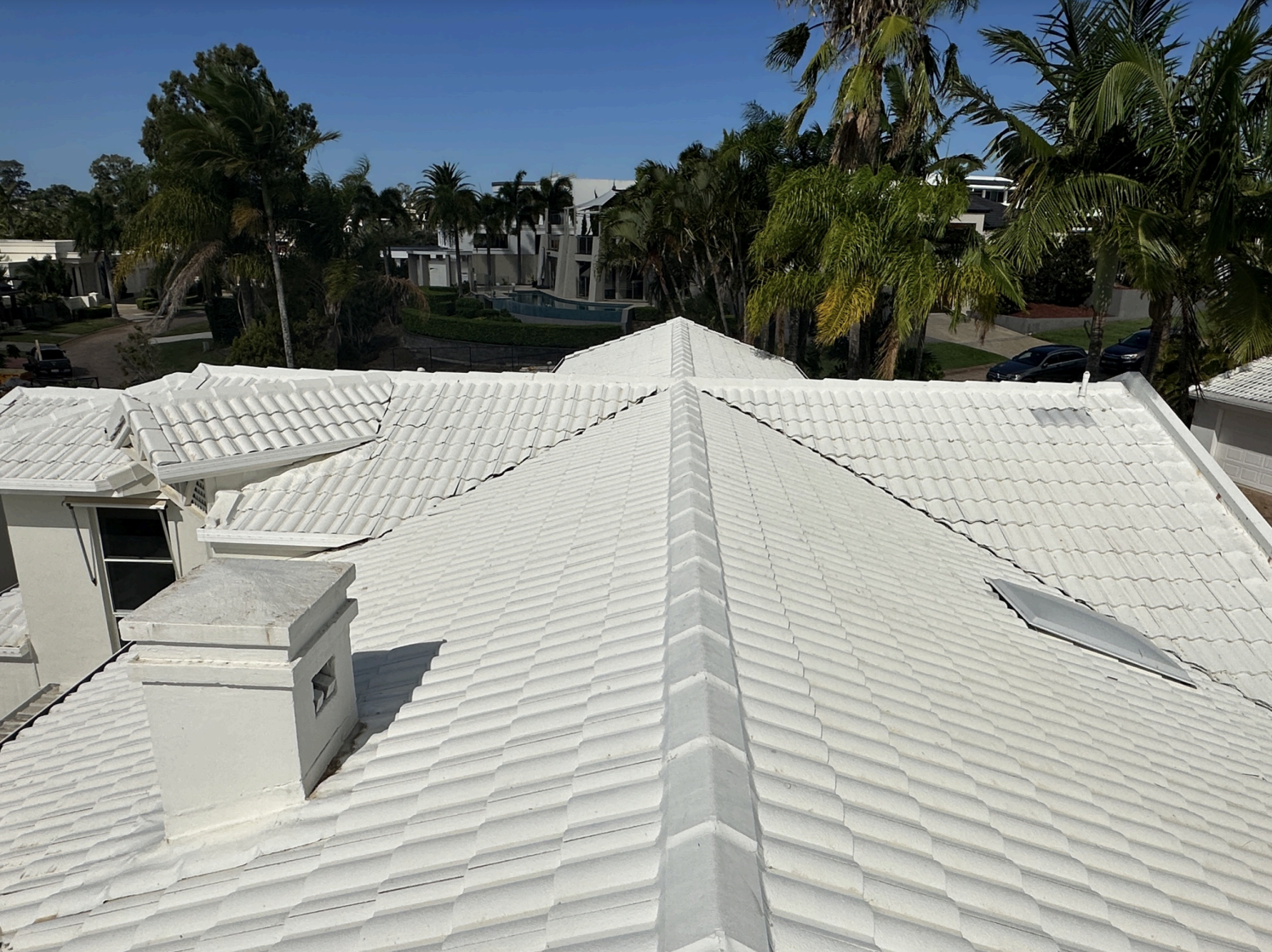
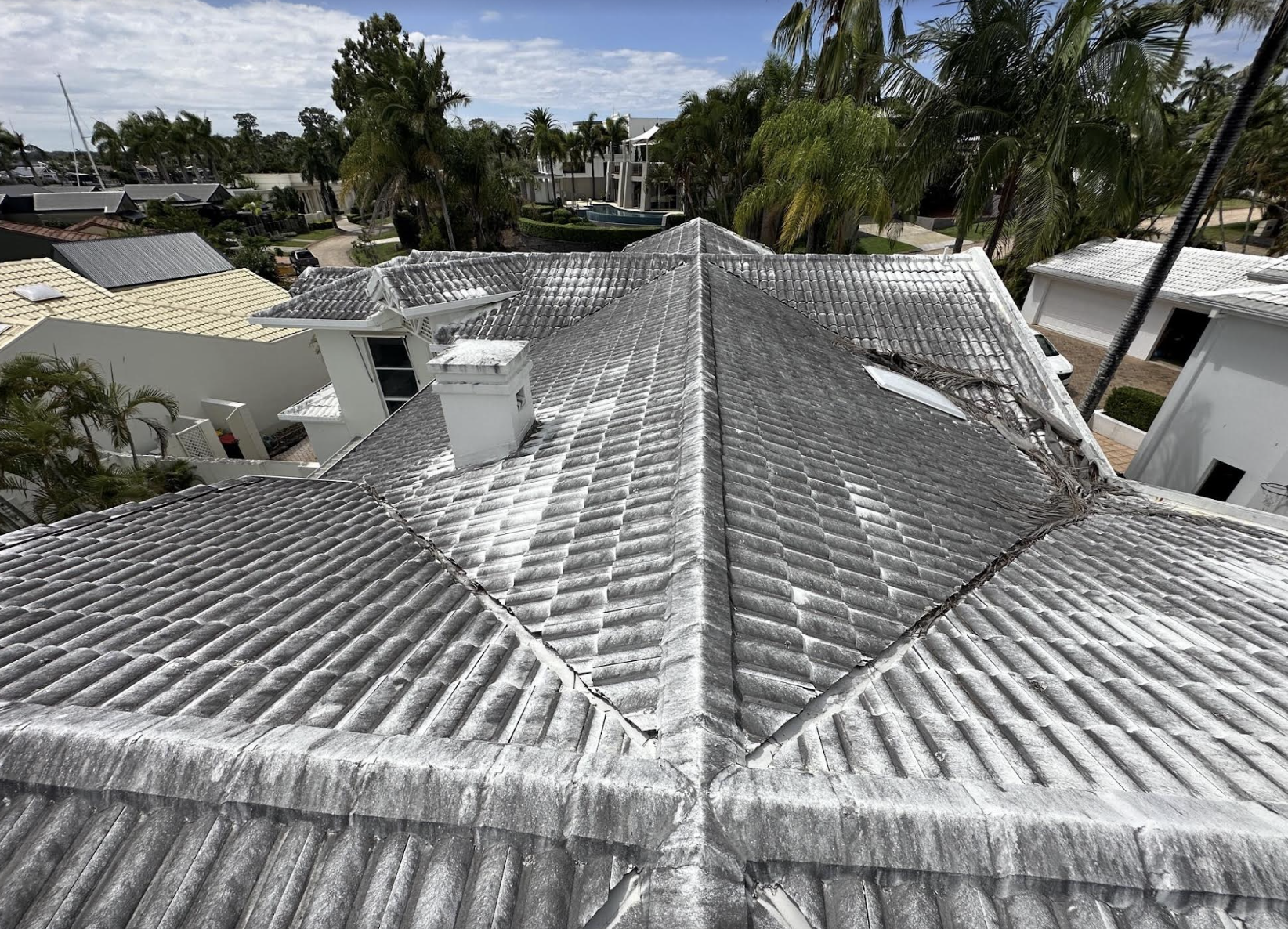
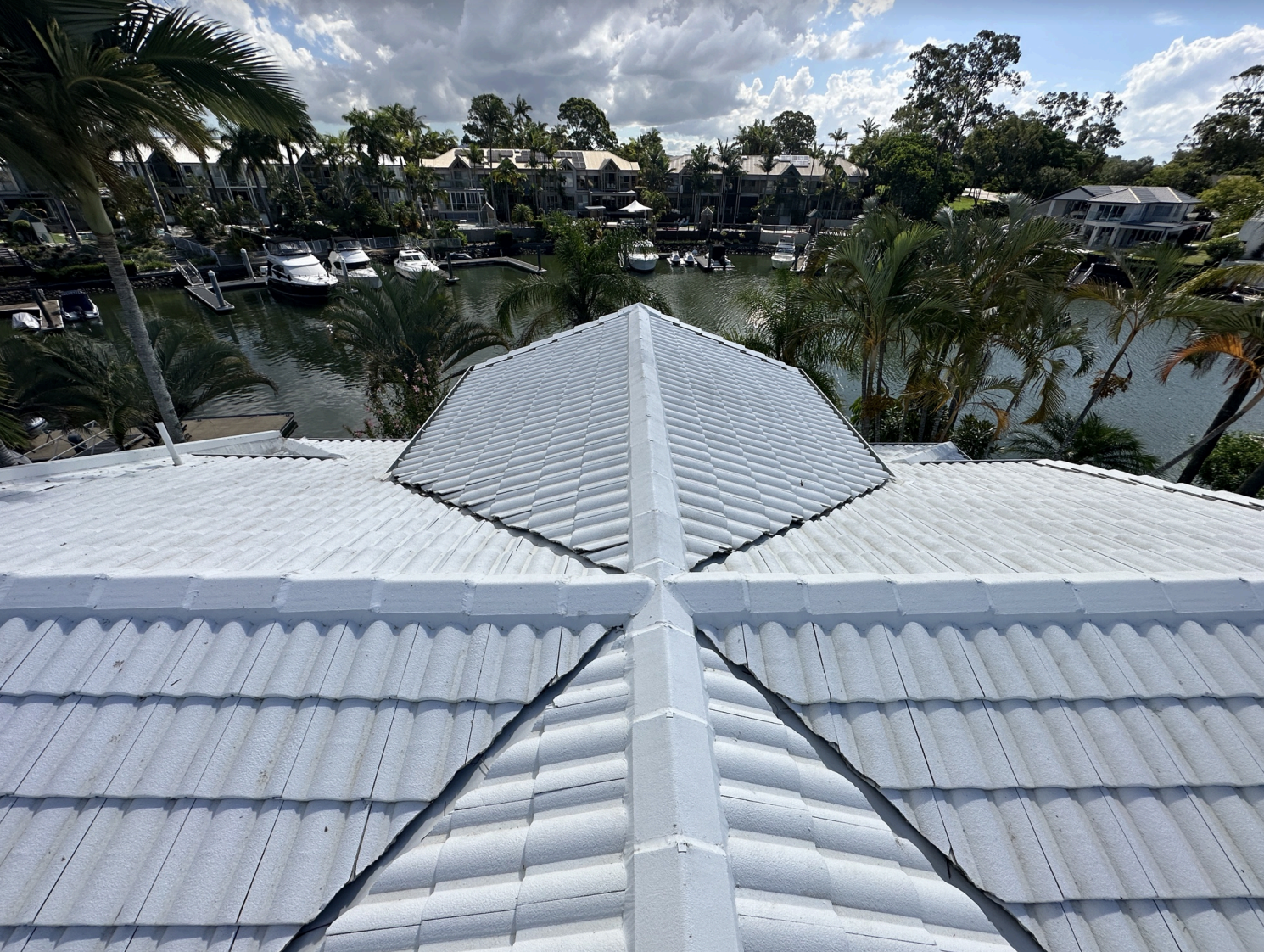
The benefits of soft washing for roof cleaning
Soft washing offers numerous advantages over traditional pressure washing and other cleaning methods:
1. Safe and Gentle: The low-pressure method minimises the risk of damage to surfaces, making it safe for delicate materials and fragile roofing.
2. Effective Cleaning: Soft washing effectively eliminates contaminants like mould, algae, mildew, lichen and dirt, leaving surfaces looking clean and refreshed.
3. Long-Lasting Results: The use of specialised cleaning solutions helps prevent the regrowth of mould, algae, lichen and other contaminants, ensuring longer-lasting results.
4. Improved Curb Appeal: Soft washing enhances the appearance of homes and properties, increasing curb appeal and potentially boosting property value.
5. Preventive Maintenance: Regular soft washing can prevent damage caused by mould and algae and lichen growth, saving homeowners money on costly repairs.
6. Customisable: Cleaning solutions can be tailored to specific contaminants and surfaces, ensuring effective cleaning for different situations.
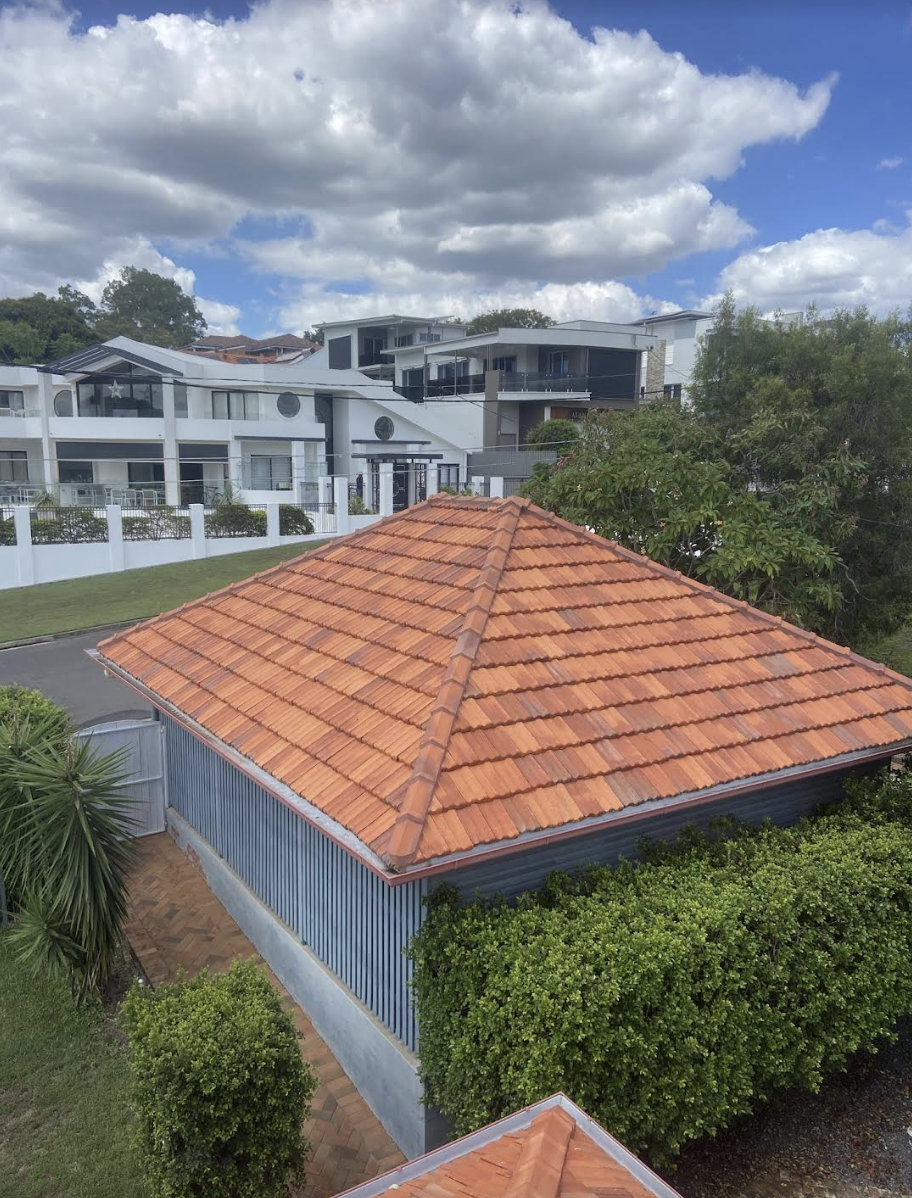
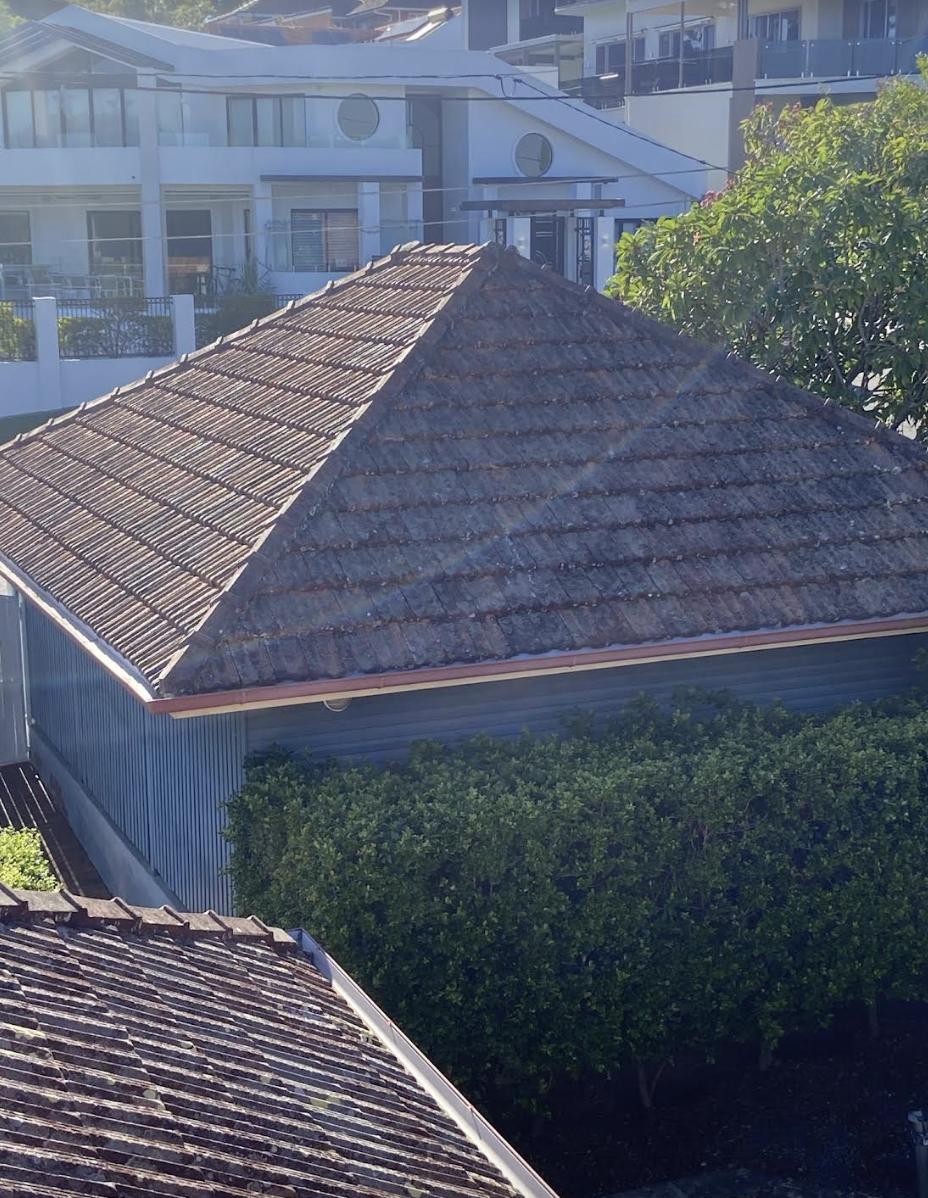
Why Soft Washing Has Gained Popularity
In recent years, soft washing has gained popularity for several compelling reasons:
1. Surface Protection: Soft washing is less likely to cause damage to surfaces compared to high-pressure washing, making it an attractive option for homeowners and property managers looking to preserve their investments.
2. Effective Cleaning: It consistently delivers exceptional cleaning results, particularly in removing organic growth like lichen and algae, which can be challenging to eliminate with other methods.
3. Preventive Maintenance: Soft washing helps prevent the need for costly repairs or replacements by eliminating contaminants that can compromise the integrity of surfaces.
4. Versatility: Its adaptability to various surfaces and contaminants makes soft washing a versatile and practical choice for a wide range of cleaning needs.
Soft washing has emerged as a preferred method for cleaning and restoring various surfaces due to its effectiveness, safety, and environmentally friendly approach. Whether you need to clean your roof, house exterior, deck, or other outdoor surfaces, soft washing offers a reliable and long-lasting solution. Its ability to eliminate contaminants and enhance curb appeal while preserving the integrity of surfaces has made it a popular choice for homeowners and property managers seeking top-notch exterior cleaning. Consider soft washing as a valuable option for maintaining and rejuvenating the appearance of your property while protecting your investment.
Get a quote today
Simply get in touch, provide us with a few details about your roof cleaning project, and we will provide you with a free quote today.
Remember, we service the whole of Brisbane, Gold Coast & Ipswich. and you’re in safe hands with our up to 30-month guarantee.
